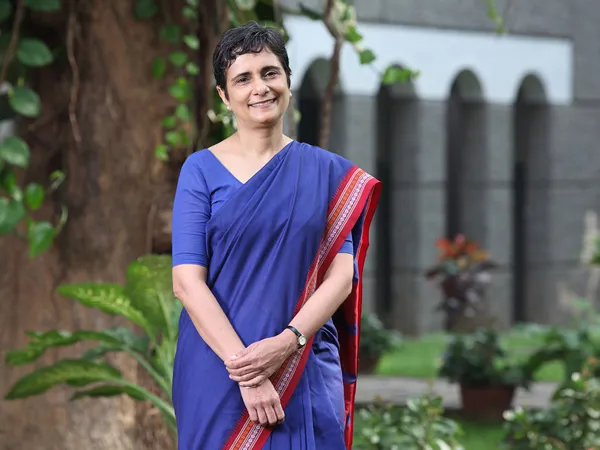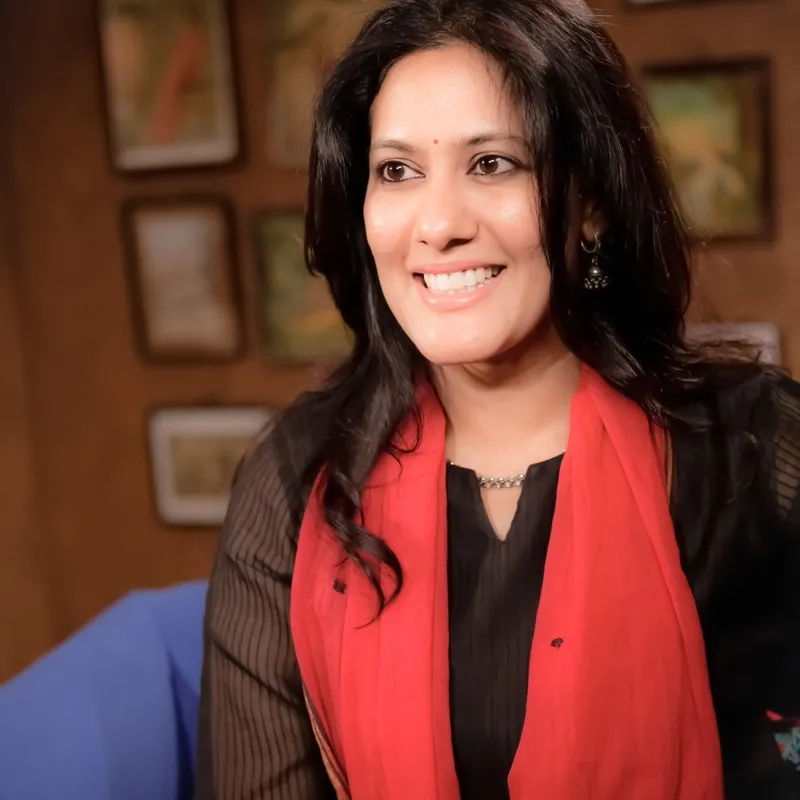Celebrating women who are changing history
This Women’s History Month, HerStory features three women who have broken the glass ceiling to create long-lasting change within their communities.
March is observed as Women’s History Month all over the world. It was designated in 1987 by the US Congress in recognition of women’s many accomplishments throughout history.
A variety of agencies, schools and organisations observe the month by focusing on the achievements and contributions of women who have created milestones for future generations.
This Women’s History Month, HerStory spoke to women leaders from different walks of life and how they achieved breakthroughs in their fields.
Gagandeep Kang, Professor of Gastrointestinal Sciences, CMC, and Executive Director, Translational Health Science and Technology Institute, Faridabad
In 2019, virologist Gagandeep Kang was the first Indian woman scientist to become a Fellow of the Royal Society (FRS) in the United Kingdom and the Commonwealth in its 360 years of history.

Gagandeep Kang, Professor of Gastrointestinal Sciences, CMC, and Executive Director, Translational Health Science and Technology Institute, Faridabad
Kang was born in Shimla, and until six years of age, she grew up with her grandmother, while her parents lived in the United Kingdom. Her grandmother struggled to give Kang and the other children in the house her undivided attention, which led to Kang not attending classes most of the time despite being in a good school.
Upon their return, her parents got her enrolled in a school in Bihar, where she failed seven out of 10 subjects. Kang says she changed 10 schools in 12 years, as her father was an engineer in the Indian Railways.
What defined the course of her life were her interactions with her uncle, who went to Christian Medical College (CMC), Vellore, and gave her a fascinating account of his life and work at the institution.
Despite all her failures, Kang graduated in Medicine and Bachelor of Surgery in 1987, followed by her Doctor of Medicine (MD) in the field of microbiology in 1991 from CMC. She received her PhD in 1998.
As one of India’s leading virologists, Kang has pioneered the research on the highly contagious rotavirus, which in the early 2000s caused over 1.3 lakh deaths in India annually.
She and her team developed vaccines that are now used to prevent the disease in Indian children. Also, her expertise was used in research across the country during the COVID-19 outbreak.
As a woman in a largely male bastion, Kang is aware of the inherent challenges. She has been navigating issues, from paucity of funds to mistrust of vaccines, by helping disseminate the right information to people, especially women.
“I am aware of the possibility of being silenced or spoken over at meetings,” she says, adding, “I often prepare myself to be among the most prepared people in the room to be able to stand my ground.”
Chhavi Rajawat, former Sarpanch, Soda village, Rajasthan
After finishing her MBA from Pune, Chhavi Rajawat, left her 9-5 job with a leading telecom firm to go back to her ancestral village in Soda, Rajasthan, to work at grassroots level. Her grandfather was a three-time sarpanch, and community members wanted Rajawat to take forward the baton.

Chhavi Rajawat, former sarpanch, Soda village, Rajasthan
“Each one of us can trace the journey of our lives back to a village. Our cities are filled with people who left villages in search of opportunities for themselves and their children. Villages are our foundation, and I went back with the belief that if they were strong, the country would flourish,” she says in a TedX talk.
In 2011, Rajawat contested the elections and became the sarpanch of her village, post which she brought water, solar power, school, roads, toilets, and a bank to her community.
Watching her village suffer one of its worst droughts, Rajawat understood that the groundwater there had been declared unsafe, even for irrigation.
“I wasn't just fighting against the ravages of a drought but to bring a community together. And I couldn't do that as an outsider, a visitor, or even as a well-intentioned resident,” she says.
In 2010, Soda had a population of about 7,000 people, and the government allocated only Rs 20 lakh in funds—half of which was spent on constructing a public building.
“So, I was starting with a budget of Rs 10 lakh for the entire year for everything, and quickly realised that not only could the panchayat not use the funds as per its own discretion, we could only execute projects that were chosen at the district headquarters and approved by the officials there. This led to a big mismatch between what the village wanted and what got approved,” she explains.
Rajawat interacted with people from each household to understand their needs and priorities. While she agrees her two terms as sarpanch were an uphill battle against the system, caste literacy, and gender-based discrimination—she realised that even the smallest interventions reaped huge and visible benefits for the village.
“I managed to deliver despite all these challenges through dialogues with the villagers, humour, creativity, proactively seeking support from the government, and by having deep conviction in myself and my ideas,” says Rajawat.
Today, she continues to work for the development of Soda, while inspiring women across India through her talks on grassroots engagement.
Gautama Meena, Founder of All India Intellectual Property Rights SC/ST Association
Gowthama Meena grew up in Chennai, rag-picking and collecting bones from slaughterhouses with her mother. She remembers not having enough water to clean herself and often going to school without a bath.

Gautama Meena, Founder of All India Intellectual Property Rights SC/ST Association, Chennai
Many years later, Meena, a practising Buddhist and Ambedkarite, founded the All India Intellectual Property Rights SC/ST Association and became the first woman to head an employee association at an all-India level.
Meena found sports relaxing and started playing football at a young age. In 1994, she became a member of the first international football tournament held in Chennai.
"The game helped me release pent- up aggression and honed my skills to observe my opponents. In many ways, it helped me do the same at work later in life," she says.
After finding shocking discrepancies in the reservation roster, in 2016, Meena and her team began protesting for their rights, and by the end of this fight, she was the lone employee sitting on a hunger strike for ten days.
Following her association’s seven-year-long fight, 459 SC/ST and OBC vacancies were filled for gazette rank officers for the very first time in her department.
Today, Meena inspires a generation of young girls in her slum of Pulianthope in Chennai to follow their dreams. She helps fund their education and trains them in sports. She has also completed her law degree to help fight cases for the oppressed.
Edited by Suman Singh







